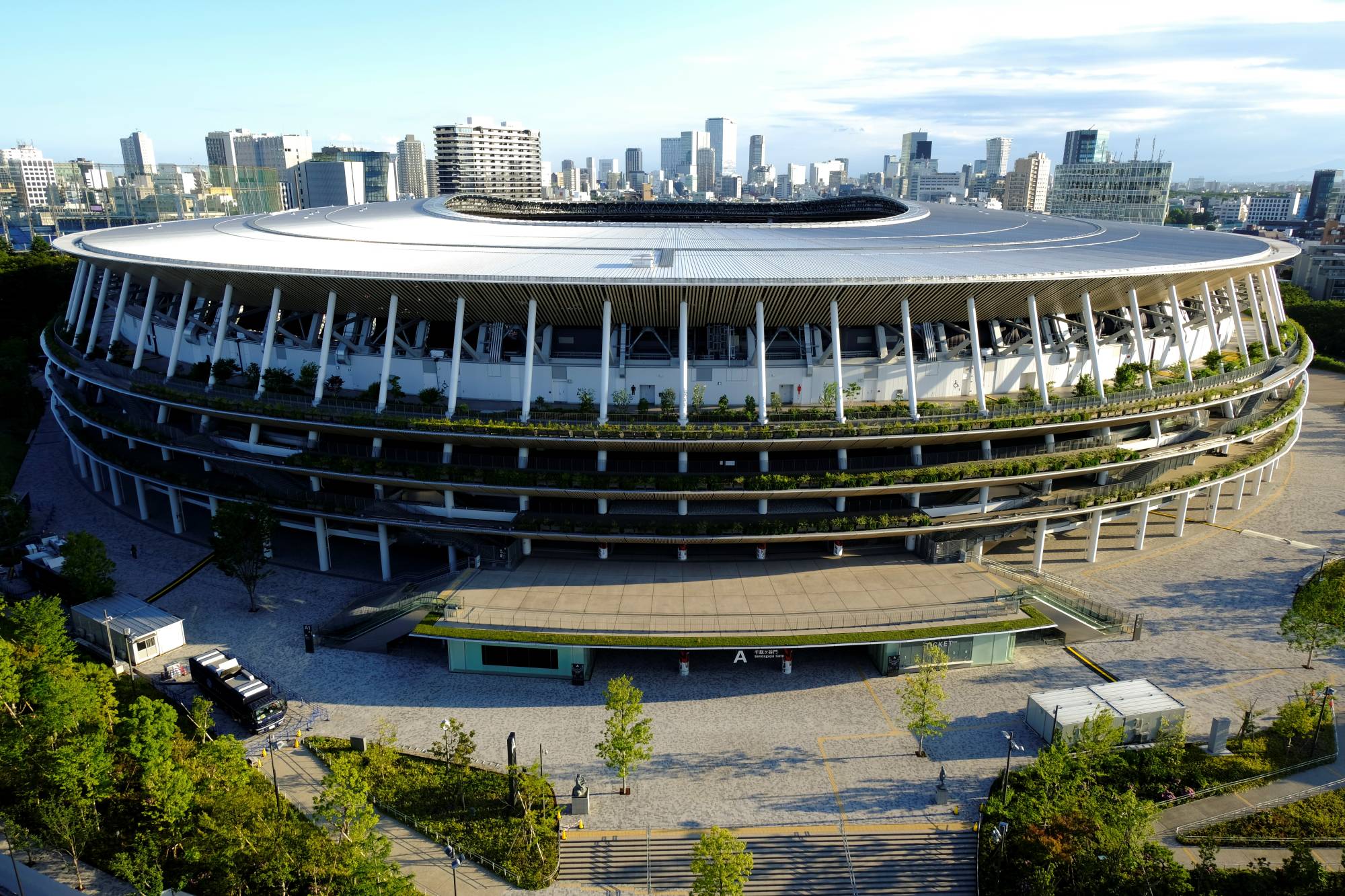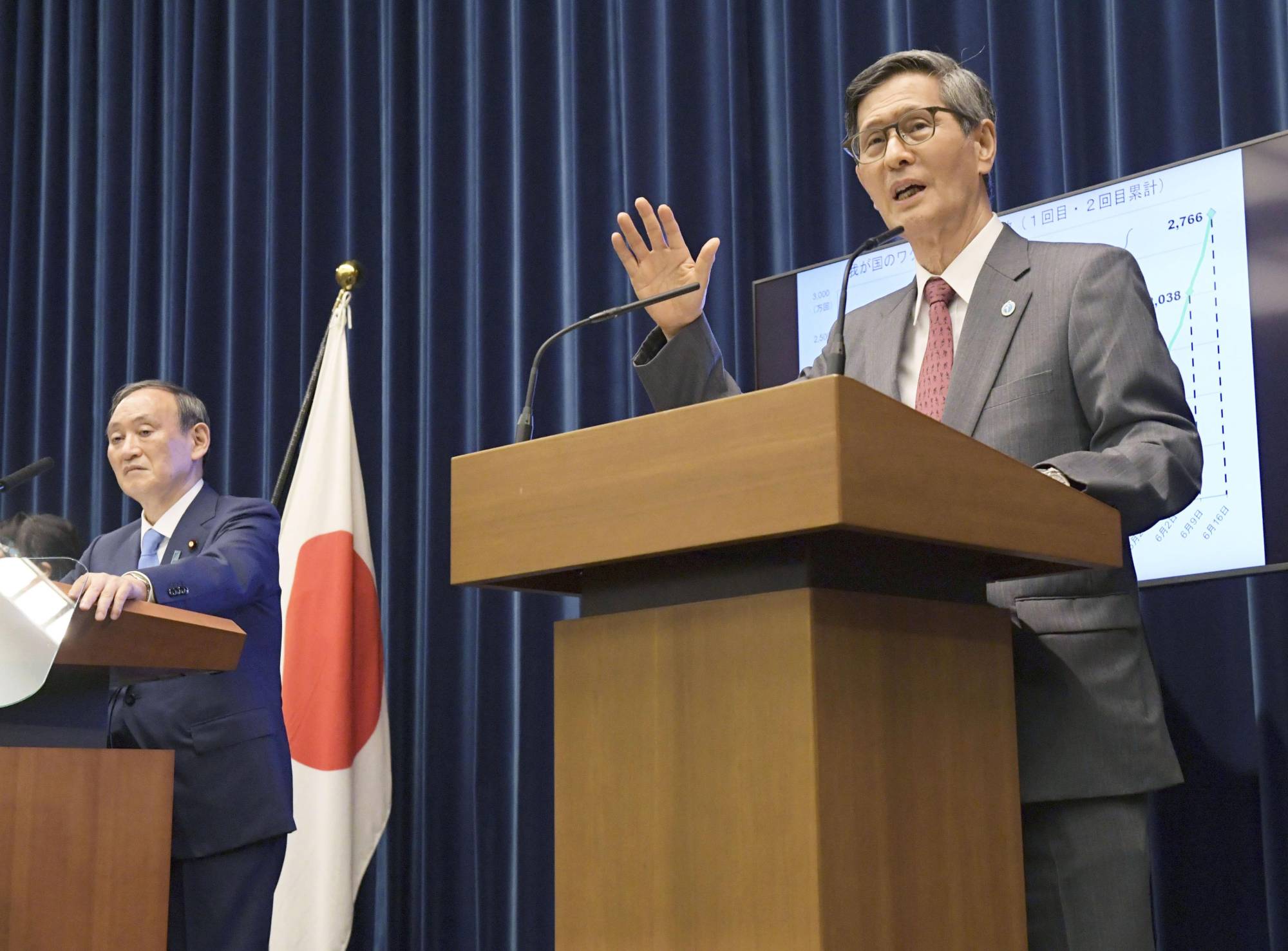An intensifying clash between the central government and its own advisers over attendance restrictions during the Tokyo Games is hounding organizers just five weeks before the opening ceremony of the Olympics on July 23.
Banning all spectators is the safest way to host the Tokyo Games, according to a report published Friday by Shigeru Omi, chair of the central government’s coronavirus subcommittee, and 25 other experts.
“The virus is still spreading in Japan regardless of the Tokyo Games,” Omi said during a news conference Friday evening. “It comes down to whether organizers can manage the risks and work with local authorities to ensure the safety of all participants.”
The experts submitted a set of proposals to the central government and the Tokyo Organising Committee outlining the measures they believe need to be taken during the games next month.
“Holding events without any spectators involves the least amount of risk, so that would be ideal,” the report said.
For the moment, it seems unlikely their warnings will be heeded.
Prime Minister Yoshihide Suga announced Wednesday the limit for attendance at large events will be raised from 5,000 to 10,000 spectators for prefectures where virus measures have been lifted. Tokyo is scheduled to exit a quasi-emergency status in mid-July, less than two weeks before the opening ceremony.
Seiko Hashimoto, president of the Tokyo Organising Committee, said Friday that competitive events during the Summer Games will honor the country’s guidelines. Organizers are expected to make a decision early next week.

If spectators were to be allowed, the report said, officials should impose tighter restrictions on the Tokyo Games than with other public events, limit attendance to locals to prevent people from traveling throughout the country and bar spectators immediately if Olympic-linked infections are detected among participants or those close to them.
Even if vaccinations proceed smoothly, the report added, another wave fueled by new variants of the coronavirus could arrive in July or August.
Owing to the exceptional scale of the event, the experts warned that holding the games — especially during the Bon holiday and summer break for students — will send a contradictory message to the public, who continue to be urged by officials to stay home and avoid large crowds.
Suga reiterated his commitment to hold the games “safely and securely” during a news conference Thursday, adding that spectators will be asked to wear masks and refrain from shouting during competitions.
Fans from abroad were banned earlier this year from attending the games. Of the 3.6 million domestic ticket holders, it’s still not clear who will be allowed to attend or how tickets will be refunded.
Critics have pointed out that there may not be enough time for another ticket lottery, and a voluntary refund program could lead many ticket holders to withdraw.
As organizers make final preparations for the games, they are focused on finalizing coronavirus measures and reducing the number of people arriving from overseas, while tightening restrictions on those who do enter the country.



The organizing committee also announced Friday that officials and staff members from overseas — of which more than 180,000 were initially expected to attend the games — will be reduced to around 53,000.
Over the past few weeks, new infections have been declining nationwide, prompting the government to decide to end its third state of emergency Sunday in nine out of 10 prefectures. Seven of the nine, including Tokyo, will see quasi-emergency measures remain in place until July 11.
But there are concerns over a resurgence of COVID-19 after the state of emergency is lifted.
When the second state of emergency was lifted in March, new COVID-19 cases started to rise, prompting the government to enact quasi-emergency measures for a handful of prefectures in April. But when those measures failed to substantially reduce infections, the government declared another state of emergency later that month.
While efforts have been made to hasten the country’s vaccine rollout, only 15.84% of the population had been inoculated with at least one shot as of Wednesday. The government plans to finish administering shots to people age 65 and over by the end of July, who comprise roughly a third of the nation’s population.
Vaccinations for those coming to Japan for the games are underway. The International Olympic Committee said around 80% of athletes will be vaccinated, and possibly the same proportion of coaches and staff.
It’s not clear yet what the vaccine policy will be for the 70,000 volunteers expected to provide support during the games.
In a time of both misinformation and too much information, quality journalism is more crucial than ever.
By subscribing, you can help us get the story right.
SUBSCRIBE NOW


